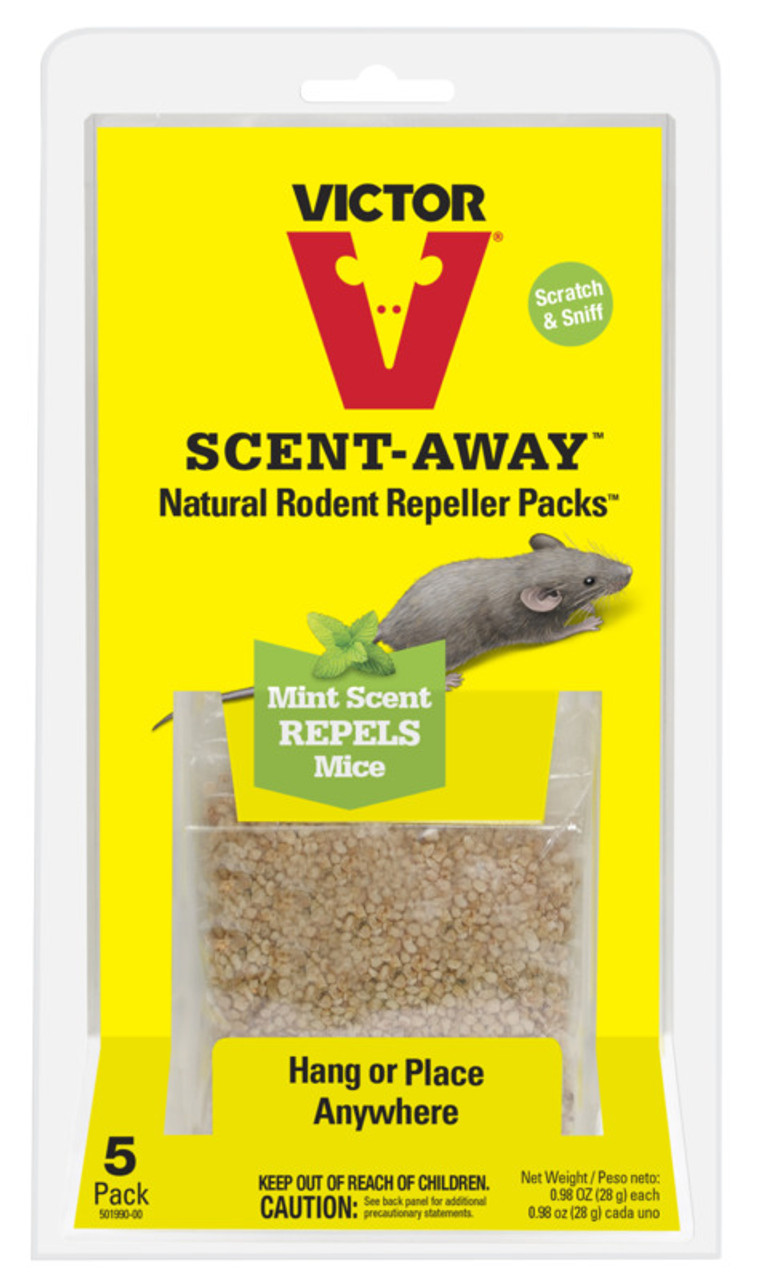Natural Rodent Repellent: Effective DIY Solutions That Work Fast
Are rodents sneaking into your home and causing trouble? You want a solution that works without harmful chemicals or messy traps.
Imagine keeping your space rodent-free using natural ingredients you can trust. This guide will show you simple, effective ways to repel rodents safely and naturally. Keep reading to discover how you can protect your home and enjoy peace of mind—without risking your family’s health or the environment.

Credit: www.amazon.com
Why Choose Natural Repellents
Choosing natural rodent repellents offers many advantages. These options protect your home without harsh chemicals. They provide a safer way to keep pests away.
Natural repellents often work with nature. They use scents and ingredients that rodents dislike. This makes them effective and eco-friendly. Many people prefer natural options for health and safety reasons.
Benefits Over Chemical Options
Natural repellents do not contain harmful toxins. They avoid polluting your indoor air. Chemical repellents can cause allergies or breathing problems. Natural products reduce these health risks.
They also help protect the environment. Chemicals can harm soil, plants, and water. Natural repellents break down quickly and safely. This makes them better for long-term use.
Safety For Home And Pets
Natural repellents are safe around children and pets. They do not contain poisons or strong irritants. This lowers the chance of accidental poisoning.
Many natural ingredients come from plants or essential oils. They repel rodents without hurting other animals. Using natural repellents keeps your home safe for everyone.

Credit: www.amazon.com
Common Ingredients For Diy Repellents
Natural rodent repellents use simple ingredients found at home or in nature. These ingredients create smells rodents dislike. You can mix them easily for safe, effective DIY solutions. These common ingredients work well to keep rodents away without harmful chemicals.
Essential Oils That Deter Rodents
Essential oils are strong and easy to use. Peppermint oil is one of the most popular choices. Its sharp scent repels mice and rats quickly. Other oils like eucalyptus, citronella, and lavender also keep rodents at bay. A few drops on cotton balls placed around your home can help.
Herbs And Spices To Use
Fresh or dried herbs can block rodents from entering. Bay leaves placed in cupboards or corners make rodents avoid those areas. Cloves and garlic have strong smells that rodents dislike. You can scatter these herbs near entry points to stop pests.
Household Items With Repellent Properties
Common household items can also deter rodents. Used kitty litter with a strong scent scares rodents away. Steel wool stuffed in holes blocks rodents from entering and irritates them. Vinegar can be sprayed in small amounts to keep rodents from returning.
Easy Diy Repellent Recipes
Natural rodent repellents are safe and effective. You can make them at home using simple ingredients. These easy DIY recipes help keep rodents away without harmful chemicals. Choose a method that fits your needs and space.
Spray Solutions For Immediate Use
Spray repellents work fast and are easy to apply. Mix water with essential oils like peppermint or eucalyptus. Use about 10 drops of oil per cup of water. Shake well and spray around doors, windows, and corners. Repeat every few days for best results.
Powder Mixes For Persistent Problems
Powder mixes last longer and are good for tough infestations. Combine baking soda, cayenne pepper, and dried mint leaves. Spread the powder near rodent entry points. Avoid placing powders where children or pets can reach. Replace the powder every week.
Homemade Sachets And Pouches
Sachets and pouches are simple and reusable. Fill small cloth bags with dried herbs like lavender, peppermint, or bay leaves. Place them in cupboards, drawers, or storage boxes. Refresh the sachets every month for continuous protection.
Application Tips For Best Results
Natural rodent repellents work best with the right application. Applying them correctly helps keep pests away longer. Small changes in how you use repellents make a big difference. Follow these tips to get the best results.
Where To Apply Repellents
Apply repellents near rodent entry points. Check doors, windows, and cracks in walls. Place them around food storage areas and kitchen corners. Avoid spots where pets or children play. Focus on hidden and dark places rodents like.
Frequency And Maintenance
Reapply repellents regularly to keep them effective. Natural ingredients lose power after a few days. Spray or place new repellents every week or after cleaning. Keep the area dry to avoid washing away the repellent. Monitor spots often for signs of rodents returning.
Combining Methods For Maximum Effect
Use repellents with traps or sealing holes. Clean up food crumbs and garbage daily. Remove clutter where rodents hide. Using different methods together increases success. Repellents alone might not stop rodents completely.
Additional Rodent Control Strategies
Natural rodent repellents work well, but combining methods boosts results. Using several strategies keeps rodents away longer. Here are extra ways to protect your home or garden from unwanted pests.
Sealing Entry Points
Rodents enter through small holes and cracks. Seal gaps around doors, windows, and pipes. Use steel wool or caulk to block openings. This stops rodents from sneaking inside. Regular checks help catch new entry points early.
Maintaining Cleanliness
Rodents love messy places with food scraps. Clean floors, counters, and storage areas often. Store food in sealed containers. Remove trash regularly to avoid attracting pests. A tidy space makes your home less inviting to rodents.
Using Traps Alongside Repellents
Traps catch rodents that repellents may not deter. Place traps near walls and hidden spots. Check traps daily and dispose of rodents safely. Combining traps with natural repellents creates a stronger defense. This method reduces rodent numbers quickly and effectively.

Credit: www.countrymax.com
When To Seek Professional Help
Natural rodent repellents work well for small problems. Sometimes, rodent issues grow too big. At that point, professional help is necessary. Knowing when to call experts saves time and stops damage.
Signs Of Severe Infestation
Look for many droppings around your home. Hearing scratching sounds inside walls is a warning. Finding chewed wires or wood shows serious damage. A strong, musty smell can mean many rodents live nearby. Seeing live rodents during the day is a red flag. These signs show the problem is bigger than natural repellents can handle.
Choosing Pest Control Services
Pick a company with good reviews and experience. Ask if they use safe, eco-friendly methods. Make sure they offer a clear plan and pricing. Professionals should inspect your home first. They need to explain how they will solve the problem. Choose a service that provides follow-up visits. This ensures rodents do not return after treatment.
How Smart Pets Lover Can Help You with Natural Rodent Repellent
Exploring Natural Rodent Repellent Through Practical Learning
Understanding natural rodent repellent goes beyond just mixing ingredients—it’s a journey that invites curiosity and hands-on learning. As you experiment with easy DIY repellent recipes, you’ll gain valuable insights into which common ingredients work best for your home environment. This practical approach not only reinforces the application tips for best results but also deepens your connection with responsible pet care, a value close to the heart of every pet parent.
At Smart Pets Lover, we believe that caring for pets and their spaces is about informed choices and confidence. Trying out natural repellents encourages a mindful balance between protecting your furry friends and maintaining a safe, chemical-free home. Should you find that additional rodent control strategies are needed, or that the issue persists, knowing when to seek professional help ensures your efforts remain effective and compassionate.
For more tailored advice or to share your experiences, feel free to reach out to our community at [email protected]—because every wag, purr, and chirp tells a story worth protecting.
Frequently Asked Questions
What Are Common Natural Rodent Repellents?
Common natural rodent repellents include peppermint oil, garlic, and cloves. These strong scents deter rodents effectively without chemicals.
How Does Peppermint Oil Repel Rodents Naturally?
Peppermint oil has a strong aroma that rodents dislike. It confuses their scent receptors and keeps them away from treated areas.
Can Natural Repellents Replace Chemical Rodent Control?
Natural repellents work well for prevention but may not eliminate infestations. For severe problems, combining methods is best.
Are Natural Rodent Repellents Safe For Pets?
Most natural repellents like peppermint oil are safe for pets if used properly. Avoid direct contact and monitor pet reactions.
Conclusion
Natural rodent repellents offer a safe way to keep pests away. They use smells and plants that rodents dislike. These methods protect your home without harmful chemicals. You can try peppermint oil, garlic, or mothballs. Regular use helps keep rodents from coming back.
Plus, these solutions are easy and affordable. Protect your space naturally and stay rodent-free. Small changes can make a big difference. Start using natural repellents today for a cleaner home.






